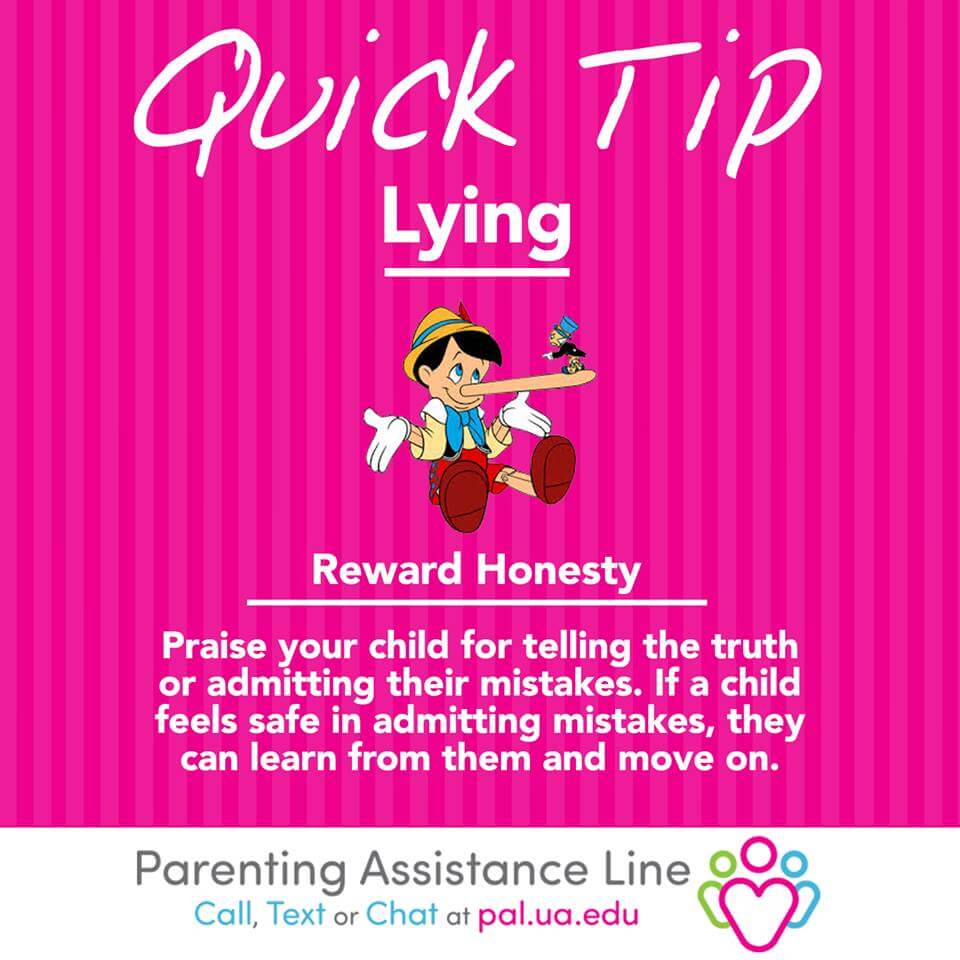Parents are often surprised by the dishonesty of their children. School-age children lie for many reasons. Understanding why children lie can be most helpful in dealing with dishonesty.
Reasons Children Might Lie:
- To impress and gain the respect of peers. (“My dad is a millionaire.”)
- To please parents. Children want to make their parents happy. (“Yes, I did my homework.”)
- To gain the approval of parents, as if a parent’s love is based on achievement. (“I scored the highest in the class.”)
- Fear of punishment. The more harshly a child is punished, the more he will lie to elude punishment. (“I didn’t do it.”)
- To avoid unpleasant circumstances. (“I have a headache. I need to stay home from school today.”)
- To gain attention. (“My stomach hurts. Will you hold me?”)
- To protect their privacy. As teens gain independence, they may lie to prevent invasion of their privacy.
Tips for Dealing with Lying:
- Model honest behavior. Children learn behavior from parents and caregivers.
- Do not ask your child to lie for you. For instance, if someone is on the phone for you, do not ask your child to say that you are not there.
- Communicate that it is the behavior that you don’t like , not the child.
- Convey that you prefer honesty, even if the truth is unpleasant.
- React in a calm fashion. If your child fears punishment, he will continue to lie. He needs to feel that he can trust you to help him work through his mistake.
- Remind the child of consequences of dishonesty. Make sure that the discipline is age appropriate.
- Talk to your child about the lie. Help him to see why he lied and give him a substitute behavior. (“If you want your friends to respect you, instead of lying, try doing nice things for them.”)
- Reward honesty. Praise your child for telling the truth or admitting his mistakes. If a child feels safe in admitting mistakes, he can learn from them and move on.







